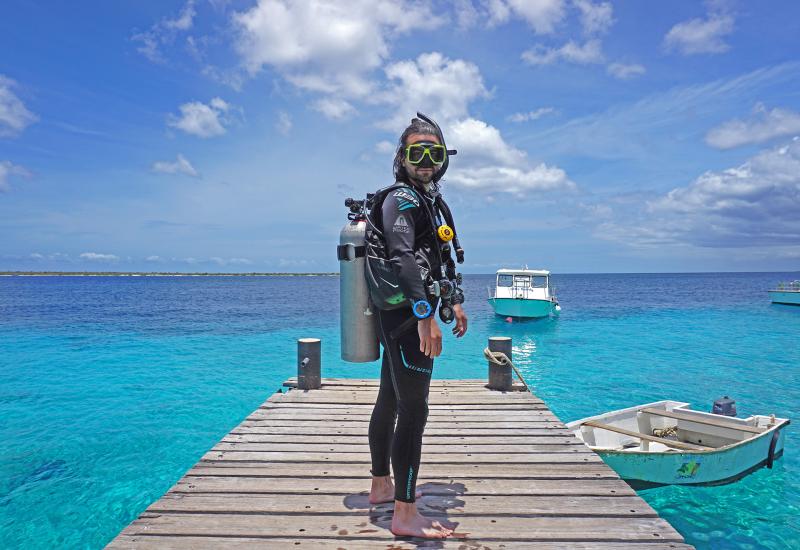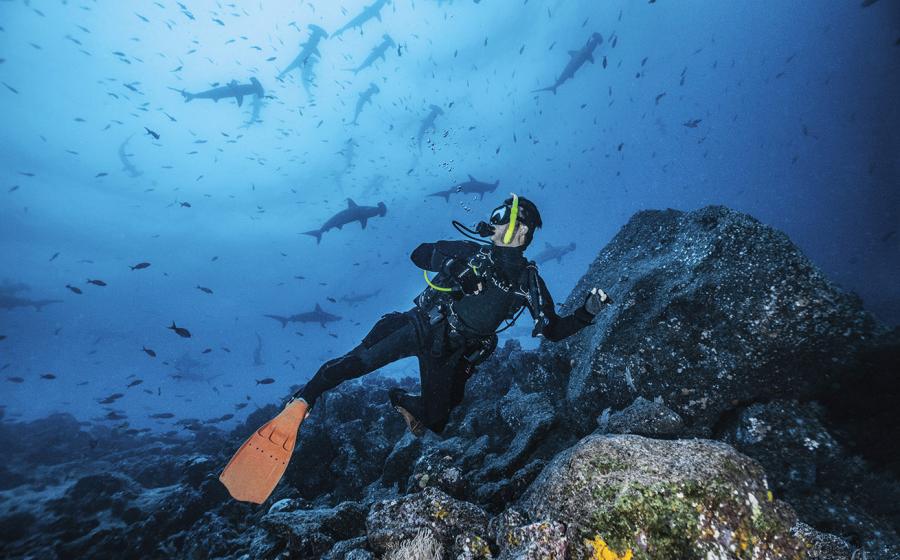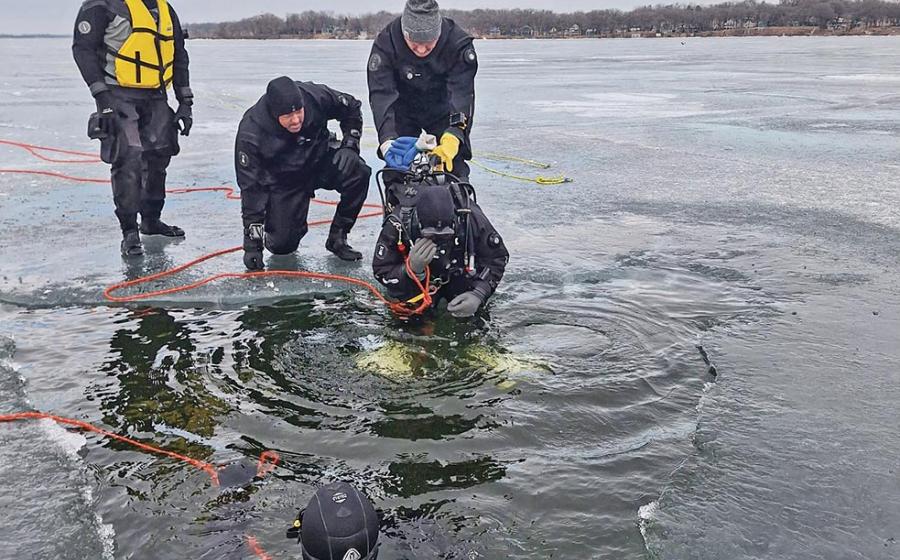Dive Doctor: Aches and Aneurysms
INJURIES AND DCS Q: I had been doing aerobic and weight training on a regular basis until about a month ago, when I started to experience pain in my shoulders. The physiotherapist said to rest my arms and shoulders for about two weeks, which I did. There is still some pain, albeit not severe. I am worried that an injury may make me susceptible to DCS during my upcoming Rescue Diver course. Should I be concerned?-- Drew Clarke A: Your weight training may have resulted in a strain or repetitive-motion shoulder injury. You were correct to stop exercising. However, the fact that you still have discomfort indicates that there may be some injury remaining. Arthritis or a compressed nerve in the neck could also result in similar symptoms. It would be wise to consult with your physician or orthopedist.It's extremely unlikely that an injury like this would predispose you to DCS, especially given the dive profiles you would use as part of a Rescue Diver course. Of greater concern is the possibility of further strain or injury imposed by the physical demands of the course. DIVING AFTER ANEURYSMSQ: I had an operation in April to remove two aneurysms in my brain. Can I ever dive again? What are the rules here? Could I still go for my Divemaster certification? My consultant does not know. Who would?-- Jan Spedding A: It's possible to dive after aneurysm surgery. However, there are a number of questions to be addressed first. It must be certain that you had a complete recovery, there are no remaining areas of weakened blood vessels and you have no physical limitations. A reasonable period of time should have elapsed since your surgery and you also must be able to exercise normally. Some patients have experienced seizures as a result of their aneurysms and any history of seizures rules you out of diving.So while it may be possible to return to diving, there are a number of important considerations and contraindications. You should discuss your situation with your neurosurgeon.WEIGHT ISSUES AND DIVING Q: I am a full-time firefighter, and after years of snorkeling I am thinking about getting certified as a diver. The problem is that I recently got hurt, gained weight and now weigh 270 pounds. I am now back at work with no problems. I passed my physical with normal respiratory and blood tests and I am currently following an exercise program to get back to my pre-injury weight. Would the fact that I weigh 270 be a problem for diving? -- Francis Cross A: It's great to hear that you want to learn to dive and are involved in an exercise program. You did not mention your height, which is important in determining how overweight you are. A diver 100 pounds overweight is different from one who is 50 pounds overweight. There are several areas to consider regarding weight and diving. First is the association of obesity and other risk factors such as high blood pressure, diabetes, smoking and elevated cholesterol with coronary artery disease. Obesity is also a risk factor in the development of decompression sickness. But since DCS is such a rare event, heart disease becomes the predominant consideration. In an older diver or someone with risk factors, your physician would probably want to see the results of an electrocardiogram or even an exercise stress test before signing a medical release statement. Another consideration is your level of fitness. Since diving can involve periods of considerable physical exertion in adverse conditions such as waves, surf and current, it is essential that a diver be in good physical condition. Being overweight will not make things any easier. Finally, an overweight diver has an additional consideration -- his buddy. Could you assist your buddy in an emergency, and alternatively, would your buddy have difficulty assisting you because of your weight? It would be advisable to discuss these considerations with your physician. If you continue to lose weight and are able to exercise without any limitation, you can look forward to starting your training. UNDERWATER SIGHTQ. Many years ago I heard that one should not dive with contacts. My sister recently became a sport diver and wears contacts. Is there a risk? -- K.S. RoyA: The use of disposable contact lenses while diving has become more popular compared to other methods such as mask prescription lenses. In the past there was some controversy as to whether they should be worn, but these concerns have gradually disappeared.The advantages of diving with contacts include not having to change from glasses to a prescription mask while gearing up and not having to worry about a lost or damaged mask. Clearing a flooded mask poses no problem as long as contact wearers remember to keep their eyes closed so as not to lose a lens. An important consideration in wearing contacts is hygiene. While it is unlikely that a recreational diver would ever dive in grossly contaminated water, this would be a situation to avoid the use of contacts. A corneal infection is a serious event and could have devastating consequences, such as loss of sight.NO IMPLANT DANGERQ. Is there any danger in diving with breast implants?-- Name withheldA: Several years ago, there was a concern about the potential for gas uptake in breast implants. Researchers at Duke University looked at this in a study and found that while some implants could absorb gas, the exposures required were well outside anything a recreational diver would encounter. There is a large population of active woman divers with implants presently diving with no reported cases of any problems related to breast implants. E-mail your medical questions to: editors@ sportdivermag.com










